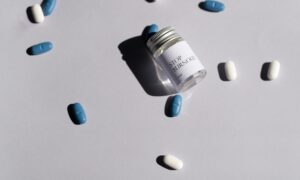In trying to create a frame-of-reference for understanding the evolving medical device industry, we repeatedly used “smart medical devices” to create a contrast between the different types of IoMT devices (e.g., intelligent devices, connected devices, etc.).
Though this approach has helped people develop a better understanding of the changing marketplace, we’ve been asked by some to dive a little deeper into the concept of smart medical devices. Though the smart medical device market has been gaining adoption for some time, the COVID-19 pandemic put pressure on medical device manufacturers to accelerate their timelines for wireless, user-friendly devices.
Impact of Smart Medical Devices in Healthcare Domain
Within the patient monitoring realm, one medical device manufacturer recently announced it would be producing a tablet that would integrate with its patient monitoring devices and enable physicians to remotely view and analyze patient health data. The diabetes market has also presented opportunities for “smart” innovation as many established and startup medical device companies continue to push medtech boundaries with wireless glucose monitoring solutions that improve patient comfort and outcomes. Finally, there are medical device companies using smart technology to improve the monitoring of asthmatic patients—a group that consists of over 19 million people in the United States alone. This list is far from exhaustive, however, it highlights the diverse ways in which smart medical devices are being used to improve the quality of people’s lives. One of the common terms associated with “smart medical devices” is “big data.”
Request Brochure for Smart Medical Devices Market Report
Though patient data was recorded long before the advent of smart technology, the adoption of smart medical devices has enabled healthcare providers to collect patient data on a scale that was unimaginable a decade ago. Further, this data isn’t being collected just because it can be—it’s being collected because it can help drive better diagnostic and treatment decisions.
It is significant to note here that a comprehensive understanding of the market growth requires a deep dive into patterns and projections of health issues and chronic illnesses. The higher the incidence, the higher the demand for smart medical devices will be as they will provide critical data to healthcare providers, track health parameters, warn in case of a approaching danger, and so on.
Why Market is Growing in Recent Years?
Additionally, chronic illnesses are seeing a steep increase in the number of cases. And, a number of lifestyle changes can be attributed to this growth. One of these is lack of proper exercise, poor dietary habits, smoking and drinking, and so on. Besides, massively increasing stress levels are also contributing to a number of health issues. It is also quite significant to note here that in the United States of America – a developed country with a robust healthcare infrastructure and favorable reimbursement policies, cases of chronic illnesses are quite high. Four in ever ten people in the region are experiences at least two chronic illnesses. Six in every ten people are suffering from one.
Another factor that is propelling significant growth in the global smart medical devices market is the growing inclination towards fitness. Not only do these factors track progress, but also it helps in monitoring rehabilitation. The higher the number of people running, gymming, and playing sports for fitness, the higher is the demand for smart medical devices, driving global medical devices to further growth.
TMR offers custom market research services that help clients to get information on their business scenario required where syndicated solutions are not enough, request for custom research report
The global smart medical devices market is fragmented owing to presence of a decent number of players in the landscape. However, the leading players account for a significant share of the market, bringing a certain degree of consolidation. Players who have a notable brand recall and loyalty are Abbott Laboratories, Apple Inc., Dexcom, Inc., Fitbit, Inc., F. Hoffmann-La Roche Ltd., Johnson & Johnson, Medtronic plc, NeuroMetrix, Inc., Samsung Electronics Co., Ltd, and Sonova. F. Hoffmann-La Roche Ltd.



































